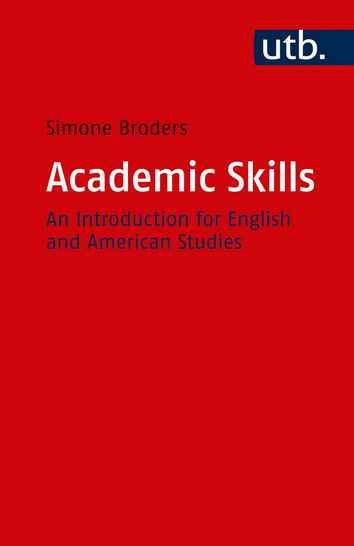Getting Started On Your Term Paper

In this article:
Why you have to write a paper in the first place Preliminaries Getting Started Research More
Why you have to write a
paper in the first place
A paper is supposed
to teach you the tools of the trade of academic work:
thorough research, evaluating sources, building a line of
argument, learning to prepare a manuscript in standardized
formats. What is most important is that writing a paper
will help you learn to think independently, not to take
everything for granted just because you can see it in
print; furthermore, you learn to convince others by
structuring your ideas and rendering them presentable in
written form. No matter if you are training to be a
teacher or if you plan on working in publishing,
advertising, or if your heart is in something completely
different – these are skills you will need in almost any
job you take on after university.
Starting to write
your paper is not always going to be fun – you are going
to curse the too complicated, too pompous language of an
expert, you are going to head to the library and come back
without the book you so desperately need, you are going to
lose your patience with a footnote you just cannot seem to
get right. In the end, however, you will have accomplished
a task, solved a problem, seen a text from a new
perspective – in short, you will have done the work of a
scholar.
Preliminaries
All papers are due on September 15th (summer semester) or
March 15th (winter semester). This deadline is binding,
i.e. there can only be extensions in case of
illness (you need to submit a medical report complete with
diagnosis to the examination office) or in case of an
obligatory internship that will prevent you from
submitting your paper on time.
You should start on
your paper as early as your schedule permits. Do your
research (and submit any necessary requests for remote
loans) during the semester so you can start writing after
the end-of-term exams. Backup your data
regularly.
If you are not sure
how to do that, consult http://www.wikihow.com/Back-Up-Data
and http://www.pcworld.com/article/209006/how_do_i_back_up_my_data.html).
Reserve
at least a week for formatting, proof-reading, and
printing.
The topic must be
approved by your course convenor. If you submit a paper on
a topic you have not talked to the course convenor about,
or if you change the phrasing of the title without
checking back with him or her, this is sufficient grounds
for rejection.
Getting Started
Research
Make sure to make
ample use of databases such as the MLA International
Bibliography (at the FAU, you can access it via http://www.ub.fau.de
> Datenbanken > Anglistik und Amerikanistik). Do not
go and see your course convenor to launch a complaint that
it is impossible for you to find any secondary sources
before you have checked the MLA database.
Note that the MLA database is a bibliography, not a
catalogue – it will tell you what texts there are, but
that does not mean they are available. JSTOR is a
digital library of academic journals, books, and primary
sources. You must be logged in via your institution (in
this case, the FAU network) to benefit from privileges
such as downloading a PDF or printing, but anyone can
register a free account which allows you to read up to
three texts at the same time online. You may also be able
to find academic texts via specialized search engines such
as Google Scholar. Be wary of sources which are
unacceptable for citing in academic contexts, such as
private fansites, an online encyclopedia anyone can edit,
or other students' papers.
More...

If you found this article helpful, you may be interested in the following publication:
Simone Broders, Academic Skills. An Introduction for English and American Studies (Fink/UTB, 2020).
German readers may also be interested in my previous publication
Simone Broders, Wissenschaftliches Arbeiten in Anglistik und Amerikanistik (Fink/ UTB, 2015).






Grundseminar Literature, Campus Regensburger Straße, Nürnberg